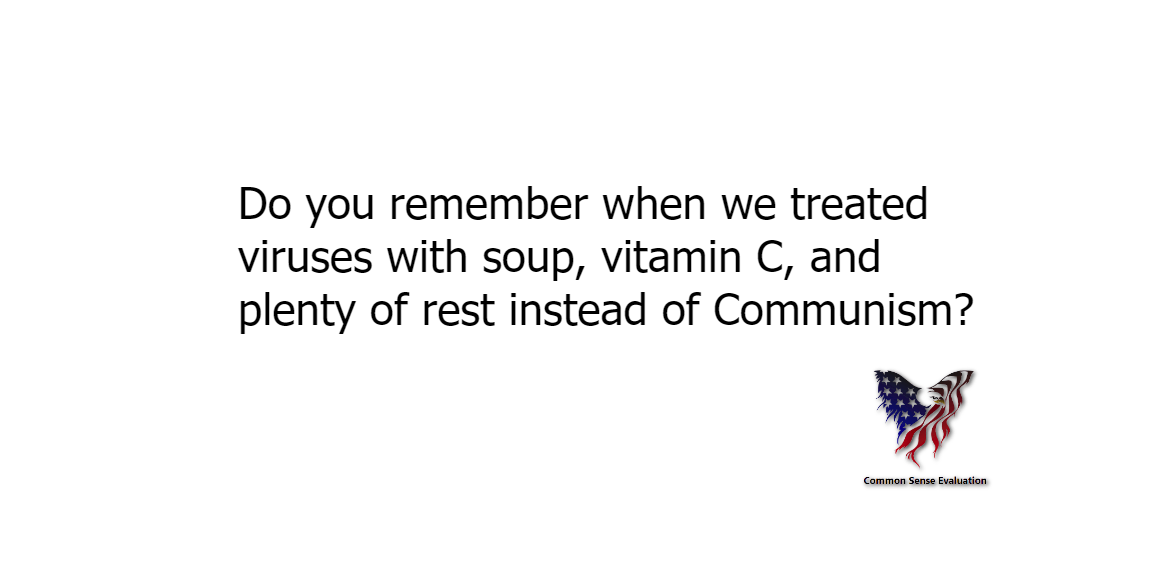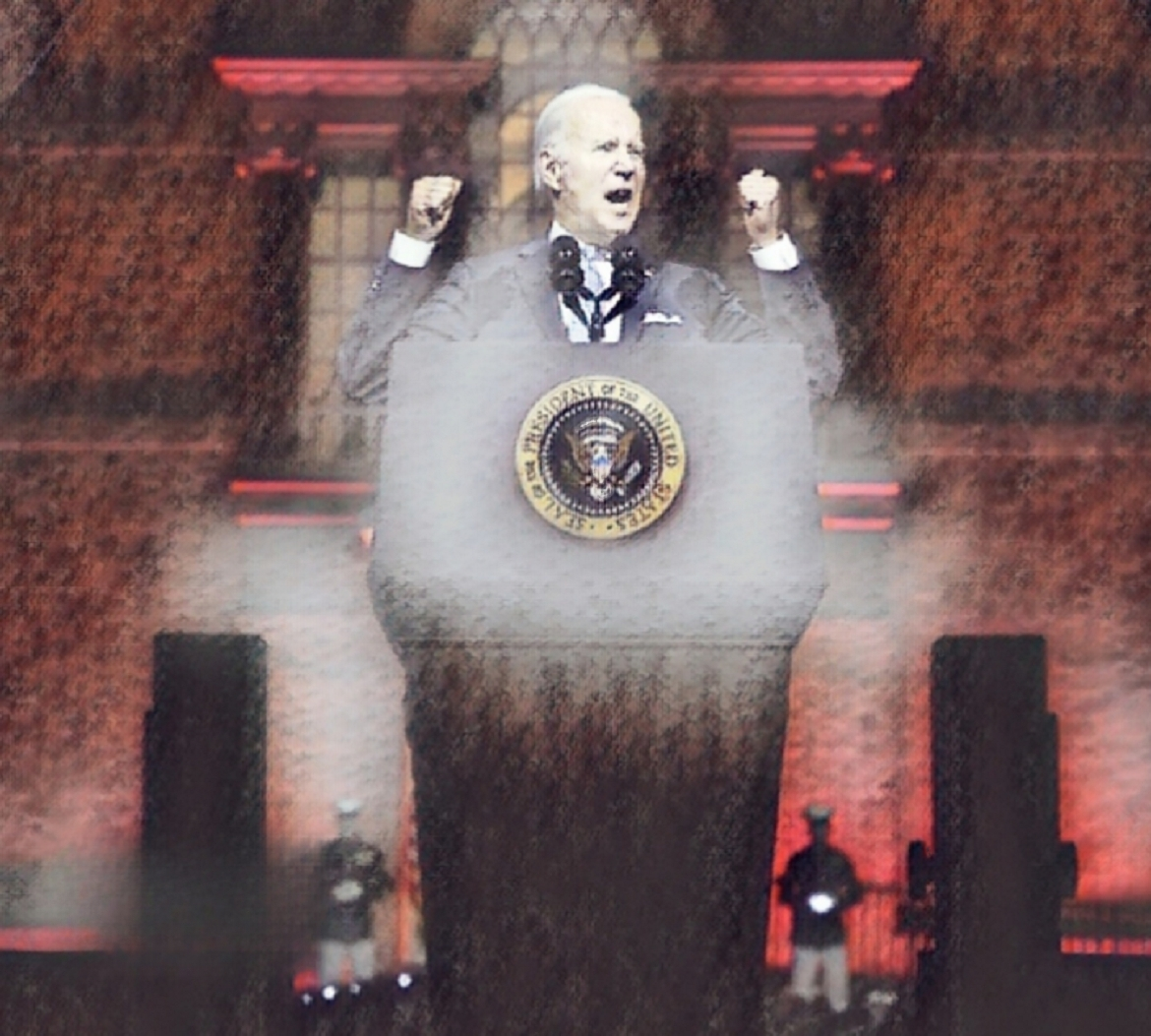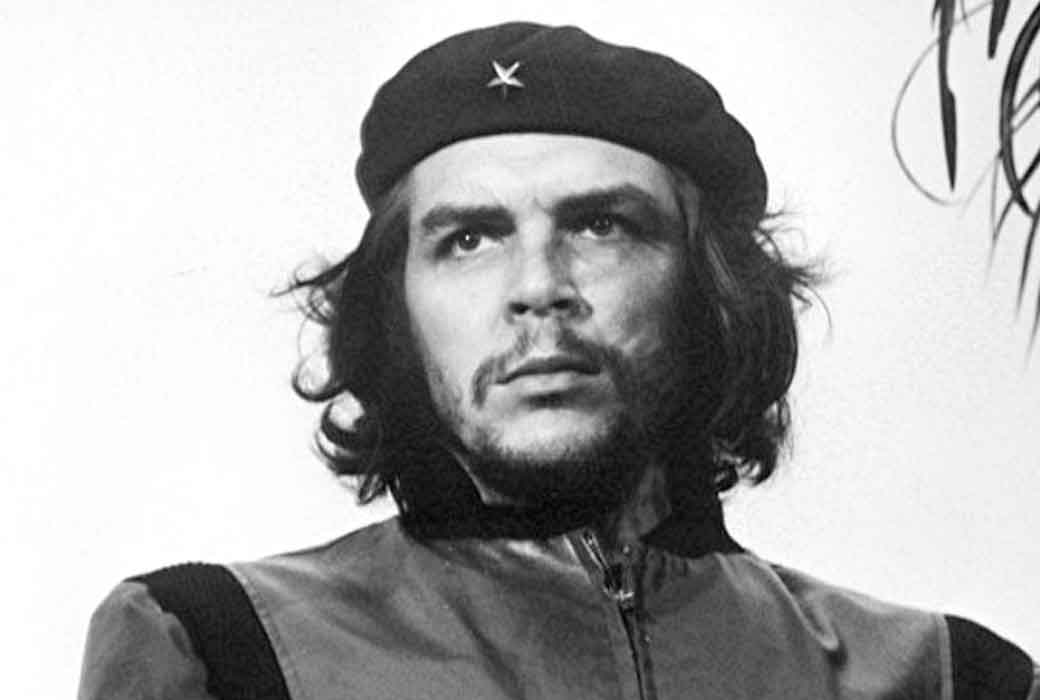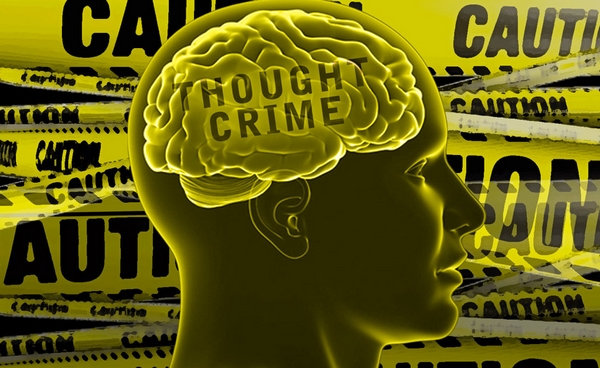Do you remember when we treated viruses with soup, vitamin C, and plenty of rest instead of Communism?
Tag: Marxism
Behind Bars: World Presidents and the Imprisonment of Political Opponents
History is replete with instances where leaders have employed a variety of tactics to consolidate their power and suppress dissent. Among the most sinister of these tactics is the imprisonment of political opponents, a strategy that has left an indelible mark on the trajectory of nations. In this comprehensive exploration, we embark on a journey through time to examine the stories of world presidents who wielded the weapon of incarceration to quash opposition. By examining their motivations, methods, and the enduring consequences of their actions, we gain a deeper understanding of the delicate balance between power and human rights. You may notice that some tactics Hitler used to consolidate power and suppress dissent are being used today in our own country.
The Machiavellian Web of Power
Historical Context: The Roots of Political Imprisonment
The concept of imprisoning political adversaries finds its origins in ancient civilizations and monarchies, where the consolidation of power often necessitated the elimination of potential rivals. In these early epochs, political dissent was frequently seen as a direct challenge to the established order, prompting rulers to resort to imprisonment as a means of maintaining control. With the emergence of modern political systems, the dynamics of dissent evolved, but the impulse to suppress opposition remained a potent force.
Machiavellian Principles: Securing Power at All Costs
Niccolò Machiavelli’s seminal work, “The Prince,” laid the groundwork for the strategic use of fear and force in the pursuit of political supremacy. His principles became a playbook for leaders seeking to navigate the treacherous waters of power. The calculated use of imprisonment, backed by a veneer of legality, allowed rulers to eliminate potential threats while maintaining an appearance of order and justice.
Stalin: The Soviet Iron Fist
Joseph Stalin’s rise to power marked a particularly chilling chapter in the history of political imprisonment. His methodical approach to purging perceived enemies culminated in the Great Purge, a period of mass arrests, show trials, and executions. Stalin’s strategy extended beyond the physical realm; he engaged in psychological warfare that shattered societal trust and perpetuated an atmosphere of fear, ultimately leaving an indelible mark on Soviet society.
The African Landscape of Power Struggles
Mobutu Sese Seko: Zaire’s Authoritarian Enigma
Mobutu’s ascent to power in Zaire (now the Democratic Republic of Congo) epitomized the iron grip of authoritarian rule. Establishing a one-party state, Mobutu employed oppressive tactics such as censorship, silencing dissent, and targeting political opponents for imprisonment. His brutal suppression of Patrice Lumumba, a charismatic leader seeking democratic reform, demonstrated the lengths to which leaders would go to maintain their grip on power.
Robert Mugabe: From Liberation Hero to Despotic Ruler
Robert Mugabe’s journey from liberation hero to despotic ruler in Zimbabwe serves as a cautionary tale of how power can corrupt even those who initially fought for justice. Mugabe’s systematic erosion of democratic institutions, crackdown on opposition, and controversial land reform policies led the nation into economic turmoil. His legacy is a stark reminder of the consequences of political imprisonment and unchecked power.
Ethiopia’s Red Terror: Mengistu Haile Mariam
Ethiopia’s experience with Mengistu Haile Mariam’s Marxist regime was marked by a reign of terror that scarred the nation’s soul. The “Red Terror” campaign, characterized by mass executions and disappearances, left an enduring legacy of trauma. The struggle for justice and accountability continues to shape Ethiopia’s path toward healing and reconciliation.
Latin America’s Dark History
Augusto Pinochet: Chile’s Military Dictator
The coup that brought Augusto Pinochet to power in Chile marked the beginning of a brutal era characterized by state-sponsored terrorism and suppression of dissent. Pinochet’s regime infamously employed the “Caravan of Death” to execute political opponents, and the National Stadium became a symbol of torture and horror. The scars left by Pinochet’s reign continue to shape Chilean society and politics.
Argentina’s Dirty War: Jorge Rafael Videla
Argentina’s dark history includes the “Dirty War,” a period of state terrorism during Jorge Rafael Videla’s military junta. Imprisonment, torture, and enforced disappearances were tools used to silence opposition and maintain control. The courageous efforts of organizations like the Grandmothers of the Plaza de Mayo have illuminated the atrocities committed during this period and spurred the pursuit of justice.
The Middle East and the Perpetual Power Play
Saddam Hussein: The Tyrant of Baghdad
Saddam Hussein’s grip on power in Iraq was characterized by a ruthless determination to eliminate anyone who posed a threat to his rule. Political purges, secret police, and a pervasive culture of fear stifled dissent and maintained his authority. The Iran-Iraq War and the Anfal genocide against the Kurds exemplified the extent to which political opponents were targeted and imprisoned.
Hosni Mubarak: Autocracy in the Land of Pharaohs
Hosni Mubarak’s autocratic rule in Egypt spanned three decades, during which he carefully dismantled democratic institutions and curtailed civil liberties. Mubarak’s reign was marked by emergency laws, media censorship, and a systematic crackdown on opposition. The Arab Spring uprising, ignited in part by Mubarak’s oppressive tactics, ultimately led to his downfall.
Hitler’s Reich: The Dark Abyss of Imprisoning Political Opponents
The Rise to Power: Machinations of Control
Adolf Hitler’s ascension to power in Germany in 1933 marked the beginning of one of the most notorious periods in modern history. With the fervent support of the National Socialist German Workers’ Party (Nazi Party), Hitler undertook a relentless campaign to dismantle democratic institutions and consolidate authority under his leadership. Hitler’s regime utilized imprisonment as a key tool to suppress political opponents and establish a totalitarian state.
The Machinery of Repression: Enabling Laws and Propaganda
Hitler’s initial steps included the Reichstag Fire Decree, enacted after the Reichstag building was set ablaze in February 1933. This decree suspended civil liberties, facilitating the arrest and detention of political opponents. The subsequent passage of the Enabling Act granted the Nazi government unparalleled authority to enact laws without parliamentary approval. This legislative framework laid the groundwork for the systematic suppression of dissent.
Propaganda played a pivotal role in normalizing the imprisonment of political opponents. The regime’s propaganda machine demonized opposition parties, presenting them as enemies of the state. By manipulating public perception, Hitler’s government justified the repressive measures it took against those who dared to challenge its authority.
The Night of the Long Knives: Consolidation through Brutality
The Night of the Long Knives, occurring in June 1934, was a watershed moment in Hitler’s brutal campaign to eliminate rivals within his own party. Seeking to solidify his power and remove perceived threats, Hitler ordered the purge of the SA (Sturmabteilung), a paramilitary organization led by Ernst Röhm. The purge resulted in the arrest and execution of Röhm and numerous other political opponents. This event showcased Hitler’s willingness to employ extreme violence to eliminate those who might obstruct his dominance.
The Gestapo: Instruments of Fear and Control
The Gestapo, the Secret State Police under the leadership of Heinrich Himmler, emerged as a potent instrument of terror. Operating outside the bounds of law, the Gestapo identified and arrested individuals deemed enemies of the state. Arrests were often arbitrary, with torture used to extract confessions and crush the spirit of dissent. Imprisoned individuals faced a range of horrors, from brutal interrogations to forced labor.
The Concentration Camps: Factories of Fear
Hitler’s regime established concentration camps as an integral part of its strategy to suppress political opposition. Initially conceived for political prisoners, the camps evolved into sprawling complexes of horror where inmates were subjected to forced labor, starvation, medical experiments, and mass killings. Camps like Dachau, Buchenwald, and Sachsenhausen became symbols of the regime’s brutality, with inmates facing extreme physical and psychological torment.
The Holocaust: Imprisonment and Annihilation
While the imprisonment of political opponents was a significant aspect of Hitler’s rule, his regime’s crimes extended far beyond. The Holocaust, a genocide that aimed to annihilate Europe’s Jewish population, involved the imprisonment, enslavement, and mass murder of millions. Extermination camps like Auschwitz-Birkenau were designed with chilling efficiency to carry out the systematic destruction of entire communities.
Legacy of Darkness: Lessons from Hitler’s Regime
The legacy of Hitler’s imprisonment of political opponents is one of horror and tragedy. The regime’s ruthless tactics left a scar on the global conscience, forever altering the trajectory of human history.
The Contemporary Landscape of Imprisonment
Vladimir Putin: Russia’s Strongman
Vladimir Putin’s ascent to power in Russia signaled a departure from the democratic aspirations of the post-Soviet era. Putin’s consolidation of power involved a systematic dismantling of democratic checks and balances. His administration’s approach to political opponents, journalists, and activists has been marked by targeted imprisonment, harassment, and even assassination. The poisoning of Alexei Navalny sent shockwaves through the international community, shining a spotlight on Putin’s iron grip on Russia.
Recep Tayyip Erdoğan: Turkey’s Polarizing Figure
Recep Tayyip Erdoğan’s early promise of democratic reform in Turkey gave way to a divisive and authoritarian regime. The failed coup attempt in 2016 served as a pretext for an extensive crackdown on perceived opponents, including journalists, academics, and civil servants. Media censorship, mass arrests, and the erosion of secularism have reshaped Turkey’s political landscape under Erdoğan’s rule.
Beyond Imprisonment: Consequences and Reflections
Erosion of Democracy and Human Rights
The imprisonment of political opponents strikes at the heart of democratic principles, eroding the checks and balances necessary for a healthy society. By suppressing freedom of speech, assembly, and expression, leaders perpetuate an environment of fear and compliance that stifles progress and innovation.
The Echoes of Trauma
The legacy of imprisoning political opponents extends far beyond the confines of prison cells. The trauma inflicted upon societies reverberates through generations, leaving deep scars that shape collective memory and impact social cohesion. The stories of the “disappeared,” the tortured, and the silenced serve as haunting reminders of the consequences of unchecked power.
Lessons from History: Striving for Change
History’s dark chapters are not without silver linings. International pressure, accountability mechanisms, and grassroots movements have all played a role in challenging the impunity of leaders who imprison political opponents. The resilience of individuals and communities who strive for justice, truth, and reconciliation serves as a testament to the enduring power of the human spirit.
Final Thoughts
The chilling tales of world leaders imprisoning their political opponents paint a haunting view of power’s corrupting influence and the grim consequences of unchecked authority. As history unveils the dark underbelly of leadership tactics, one can’t help but be struck by the fragility of freedom and the relentless erosion of human rights when leaders succumb to the lure of authoritarianism.
In the midst of this somber reflection, the contemporary political landscape, including the illegitimate tenure of Joe Biden, casts an unsettling shadow. Despite promises of progress and change, even leaders who ascend to power with the rhetoric of hope may find themselves tempted by the same Machiavellian principles that have plagued history. The imprisonment of political opponents becomes a stark reminder that the allure of control and suppression can taint the intentions of leaders across the spectrum.
The lessons from these unsettling accounts are stark and unrelenting. The erosion of democracy’s foundations is a testament to the insidious nature of power, as leaders trade justice for control and transparency for opacity. By imprisoning political opponents, these presidents exploited the basic principles that underpin a thriving society, plunging their nations into a state of perpetual unease.
The echoes of their actions resonate far beyond prison walls. The psychological scars inflicted upon societies endure through generations, transforming communities into cauldrons of suppressed anger, fear, and mistrust. Those who survived the horrors of imprisonment carry with them not only the physical wounds, but also the indelible marks of betrayal by leaders they once trusted.
In a world where authoritarian tendencies continue to find fertile ground, these stories serve as a stark warning. As we witness the rise of new power structures and the resurgence of old tactics, including within the confines of democratic nations, we must remain vigilant against the erosion of democratic values. The struggle for justice, truth, and accountability becomes not just a historical lesson but an urgent call to action against the tides of oppression.
Ultimately, these tales challenge us to confront uncomfortable truths about the human capacity for cruelty and the vulnerability of societies to manipulation. They lay bare the uncomfortable reality that beneath the veneer of progress and enlightenment, the specter of tyranny lurks, waiting for the right moment to assert its dominance.
As the world continues to grapple with the legacy of imprisoned political opponents, including those from recent times, we are reminded of the enduring importance of fostering a collective memory that resists the allure of authoritarianism. Only by acknowledging the darkest corners of our history can we hope to forge a future that safeguards the dignity, rights, and freedoms of all. This ensures that the haunting stories of today become the cautionary tales that guide us toward a brighter, more just tomorrow.
Unveiling the Globalist Agenda: The Ominous Path Towards a New World Order
In recent years, a powerful and shadowy force has been stealthily pushing a seemingly progressive agenda onto society, advocating for the acceptance of transgenderism and grooming as the norm. While many consider these movements as part of a noble fight for human rights and inclusivity, an alternative and darker perspective has emerged. This article delves deep into the intriguing narrative that suggests globalists are exploiting these societal changes to dismantle the fabric of our world and pave the way for a Marxist New World Order.
The Rise of Transgender Acceptance
The first step in the alleged globalist plan is the promotion of transgender acceptance. Advocates argue that transgender individuals should be treated with respect and granted equal rights, a stance that many of us can stand behind. However, this push is not solely about empowering a marginalized group but rather a strategic move to weaken societal norms.
By dismantling the traditional binary view of gender, the globalist elite can blur the lines between identity, destabilizing established cultural norms and traditions. Consequently, this erosion of societal foundations lays the groundwork for a more malleable and compliant population, paving the way for the next phase in their sinister agenda.
The Controversy of Grooming
The topic of grooming is a contentious and sensitive issue that has gained widespread attention in recent times. Grooming, the act of manipulating and exploiting vulnerable individuals, has been co-opted by the globalist narrative as another means to achieve their malevolent goals.
By promoting leniency towards grooming, the globalists aim to undermine traditional family structures and moral values. As trust in institutions erodes, they capitalize on the resultant disarray, ultimately positioning themselves to seize control over a fractured society.
The Puppeteers Behind the Curtain
To understand how these movements serve the globalist cause, one must scrutinize the unseen hands guiding this grand orchestration. Allegedly hidden behind the veneer of philanthropy and progressive ideals, the globalist elite comprises influential figures within the highest echelons of politics, finance, and media.
These puppeteers control information dissemination, using media outlets to shape public opinion and sway minds. With the mainstream narrative in their grip, they manipulate the masses, nudging society towards their desired path while shrouding their true intentions in darkness.
The Power of Distraction
While the world becomes preoccupied with debates on gender and identity, the globalist masterminds work silently in the background, tightening their grasp on power. Distraction proves a potent tool, as public attention remains fixated on trivialities while the world inches ever closer to a seemingly unavoidable cataclysm.
The globalists play a game of divide and conquer, perpetuating social conflicts to distract us from their long-term plans. By pitting us against one another, they weaken our collective strength and make it easier to impose their vision of a New World Order.
Towards a Marxist New World Order
The globalist endgame culminates in the establishment of a Marxist New World Order (The Great Reset), a system in which individual liberties and free will are stripped away, leaving a heavily centralized and authoritarian regime in control. This so-called utopia is little more than a dystopian nightmare, with the globalist elite reigning supreme while the rest of humanity languishes under their rule.
Final Thoughts
As the curtains draw to a close on this chilling exposé, the sinister truth behind the globalist agenda becomes ever more apparent. The acceptance of transgenderism and grooming is not merely a push for equality and compassion; it is a strategic maneuver, a devious means to dismantle the very foundations of our society.
While the masses remain blissfully unaware of the puppeteers pulling the strings, the globalist elite continues to exploit our vulnerabilities, sowing seeds of division and chaos. With each passing day, the darkness grows, engulfing us in a malevolent embrace that seeks to suffocate our freedoms and extinguish our individuality.
The path they pave towards a Marxist New World Order looms ominously on the horizon, shrouding the world in a cloak of oppression and control. In their envisioned utopia, autonomy and liberty will become distant memories, replaced by a pervasive sense of powerlessness and compliance. You will own nothing and be happy.
To combat this existential threat, we must wake from our complacency and face the cold, hard truth. The battle ahead is not for the faint-hearted, as we grapple with the machinations of the most powerful and enigmatic forces the world has ever known.
Let this serve as a stark reminder that we can no longer afford to be mere spectators in the unfolding drama of our civilization. Only by arming ourselves with knowledge, unity, and unwavering determination can we hope to resist the allure of the abyss and reclaim our destiny from those who would consign us to the depths of a dystopian nightmare.
The road ahead is fraught with peril, but it is not an insurmountable one. We must face the darkness head-on, for only by confronting the shadows can we bring forth the light of truth. The fate of our world hangs in the balance. It is up to us to determine whether we succumb to the malevolent grasp of the globalist agenda or rise as a united force to preserve the sanctity of human spirit and freedom. The choice is ours, but the consequences are far-reaching and irrevocable. May we find the strength to face the abyss and emerge victorious, for the future of humanity depends on it.
Unveiling the Dark Side of Che Guevara
Che Guevara, a prominent figure of the Cuban Revolution, continues to be an enduring symbol of rebellion and revolution. His iconic image is plastered on T-shirts, posters, and walls worldwide, representing a romanticized view of a fearless fighter for justice. However, beneath this idealized image lies a dark side that cannot be overlooked. This article delves into the lesser-known aspects of Che Guevara’s life, shedding light on his fervent adherence to Marxist ideology and his involvement in the torture of certain groups of people.
Marxist Ideology
Che Guevara was an ardent follower of Marxist ideology, passionately believing in the establishment of a communist society. He advocated for a radical transformation of societies through armed struggle, promoting guerrilla warfare as a means to overthrow capitalism. While his ideology might have resonated with those disillusioned by the prevailing socio-economic conditions, Guevara’s approach often led to violence and bloodshed.
Torture and Executions
One of the most disturbing aspects of Che Guevara’s legacy is his involvement in the torture and execution of individuals deemed enemies of the revolution. As the head of La Cabaña prison in Havana following the Cuban Revolution, Guevara oversaw summary trials and executions of thousands of individuals, many of whom were considered political dissidents or opponents of the regime.
Guevara’s approach to justice was ruthless, with little regard for due process or human rights. He famously declared, “To send men to the firing squad, judicial proof is unnecessary. These procedures are an archaic bourgeois detail.” This dismissal of basic legal principles resulted in the execution of numerous individuals without fair trials, leading to widespread fear and suppression of dissent.
Targeting Certain Groups
Guevara’s ruthless methods extended beyond political dissidents. His actions also targeted specific groups, such as homosexuals, religious minorities, and Afro-Cubans (Blacks), among others. Guevara held homophobic views, considering homosexuality a bourgeois decadence that needed to be eradicated. This led to the persecution and imprisonment of countless individuals based solely on their sexual orientation.
Similarly, Guevara’s disdain for religion translated into the persecution of religious minorities, particularly targeting the Catholic Church. Churches were confiscated, clergy members were marginalized, and religious practices were heavily restricted under Guevara’s influence.
Legacy and Controversy
Despite his dark legacy, Che Guevara remains an iconic figure and a symbol of rebellion for many. His likeness is still celebrated as a symbol of anti-imperialism and resistance in various parts of the world. However, it is crucial to critically examine historical figures, acknowledging their positive contributions while not shying away from their darker aspects.
Final Thoughts
Che Guevara’s Marxist ideology and his involvement in the torture and execution of individuals considered enemies of the revolution paint a chilling picture of a man who embraced violence and disregarded human rights in the pursuit of his vision. While some may continue to revere him as a symbol of revolution and justice, it is crucial to confront the darker aspects of his legacy. The shadow cast by Guevara’s ruthless methods serves as a stark reminder of the potential dangers lurking within ideologies driven by absolute conviction. As history unfolds, it is imperative that we approach the study of historical figures with a critical eye, acknowledging their flaws and atrocities alongside their contributions. Only then can we strive for a more comprehensive understanding of the complex tapestry of human history and guard against the repetition of the darkest chapters.
Thought Crimes and Marxist Social Media Censorship
In the realm of social media, concerns about the suppression of dissenting voices and the rise of censorship have become increasingly prominent. This article delves into the concept of “thought crimes,” Marxist influence on social media censorship, and the additional claim of intelligence agency involvement. By shedding light on these interconnected issues, we aim to explore the potential risks they pose to free speech and the free discourse of ideas.
The Rise of Thought Crimes
Thought crimes, as derived from George Orwell’s novel 1984, refer to the notion that certain thoughts or opinions can be considered punishable offenses, irrespective of whether they are expressed publicly or privately. While the idea of penalizing individuals for their thoughts may seem far-fetched, instances have occurred where individuals faced severe consequences for expressing unpopular or controversial views.
The suppression of thought crimes can have a detrimental impact on free expression and the open exchange of ideas. By fostering an environment of fear and self-censorship, individuals may refrain from expressing their opinions, stifling diverse perspectives and hindering intellectual growth. This concern becomes even more pronounced when coupled with the allegations of intelligence agency involvement in social media censorship.
Marxist Influence on Social Media Censorship
Critics argue that social media platforms exhibit an ideological bias, favoring certain political perspectives while marginalizing or silencing others. These critics suggest that a Marxist influence is at play, contending that social media giants and their algorithms are being leveraged to suppress dissenting voices and promote a specific worldview.
The alleged Marxist influence on social media censorship has sparked intense debate. Proponents argue that such measures are necessary to combat hate speech, disinformation, and protect vulnerable communities. However, opponents maintain that this type of censorship often suppresses legitimate viewpoints that challenge the mainstream narrative, thereby threatening the principles of free speech.
Intelligence Agency Involvement
In addition to claims of Marxist influence, another assertion that has gained attention is the alleged involvement of intelligence agencies such as the FBI (Federal Bureau of Investigation) and CIA (Central Intelligence Agency) in directing social media censorship. Critics argue that these agencies, driven by national security concerns, exert influence on social media platforms to control the flow of information and shape public opinion.
The Dangers of Censorship and Intelligence Agency Involvement
The dangers associated with censorship and the alleged involvement of intelligence agencies in social media censorship are deeply unsettling and should raise significant alarm bells. These issues pose a severe threat to free speech, American values, and the very essence of a free society.
Censorship, when wielded as a tool of control, has the potential to silence dissent and suppress critical thinking. By limiting the range of ideas and opinions that are deemed acceptable, it creates a chilling effect on free expression, stifling creativity and hindering societal progress. The narrowing of public discourse not only undermines the principles of our Republic and also fosters a dangerous atmosphere of conformity and intellectual stagnation.
The alleged involvement of intelligence agencies in social media censorship raises even graver concerns. It suggests a sinister manipulation of information and public opinion for undisclosed agendas. The concentration of power in the hands of clandestine entities undermines transparency, accountability, and the very fabric of representative governance. It opens the door to the creation of a surveillance state, where individual privacy is sacrificed, and dissenting voices are suppressed through covert means.
Intelligence agency involvement in censorship also raises questions about the erosion of trust between citizens and their government. When the lines between national security and the suppression of free speech become blurred, it becomes increasingly challenging to distinguish between genuine threats and the manipulation of narratives to maintain control. This erosion of trust can fracture societies, creating an atmosphere of suspicion, division, and a loss of faith in the institutions that are meant to protect and uphold our American values.
Furthermore, the clandestine nature of intelligence agency involvement makes it difficult for citizens to hold these entities accountable. Without transparency and independent oversight, there is a risk of unchecked power, abuse, and the infringement upon fundamental rights. The potential for manipulation, censorship, and the covert control of information becomes an existential threat to our Republic.
Conclusion
The dangers of censorship and the alleged involvement of intelligence agencies in social media censorship are dark and foreboding. The suppression of free speech, the manipulation of public opinion, and the erosion of trust pose significant threats to the principles upon which free societies are built.
Preserving free speech and safeguarding our representative Republic require unwavering vigilance and collective action. Transparency, accountability, and independent oversight are crucial to ensure that censorship decisions are made in the public interest, free from ulterior motives or hidden agendas. A society that values open discourse, protects individual freedoms, and challenges authoritarian control can only be achieved through relentless scrutiny and the unwavering defense of free expression.




